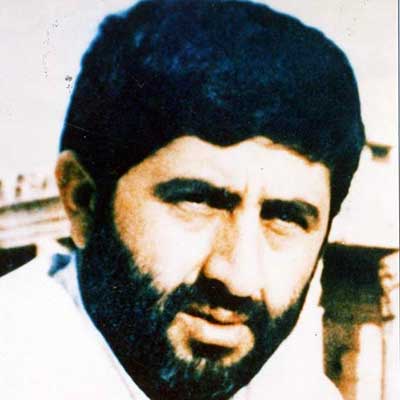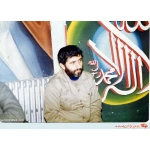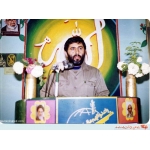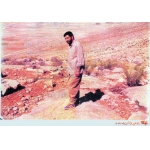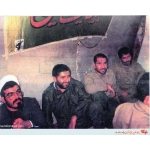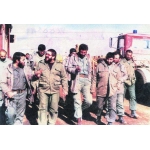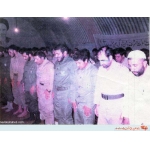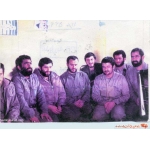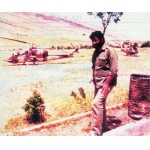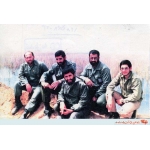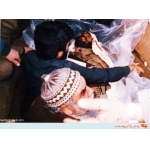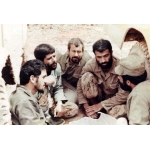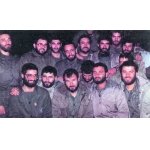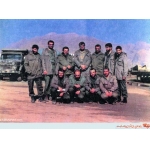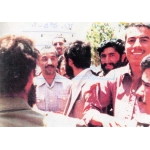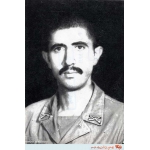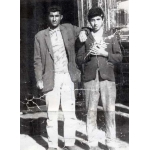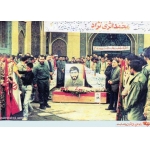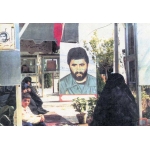Atharinejad, Muhammad
Masoumeh Abedini
269 بازدید
Muhammad Atharinejad (1956-1985) was the logistics officer of the Islamic Revolutionary Guard Corps Navy and the deputy commander for logistics at the Khatam al-Anbiya Headquarters during the Iran-Iraq War.
Atharinejad was born in 1956 in the village of Hosseinabad Kamfirouz, Marvdasht, a suburb of Shiraz. Until the age of ten, he took Quranic lessons, and completed his primary education. ue to financial difficulties, he finished elementary school by attending night classes and then left formal education. To support his family, he turned to farming. After completing ten months of mandatory military service, Athirinejad was exempted due to his mother's death, as he assumed the responsibility of the family.
Inspired by Ayatollah Mutahhari’s books and Imam Khomeini’s treatises, Atharinejad began his religious activities before the victory of the Islamic Revolution. He traveled to Qom on several occasions where he met with influential clerics. Consequently, he engaged in political and revolutionary activities including distributing Imam Khomeini’s leaflets and messages in Qom and Tehran and participating in demonstrations against the Pahlavi regime. Moreover, during the final days of the Pahlavi regime, Atharinejad along with other revolutionaries, took part in seizing military centers.
After the victory of the Islamic Revolution in 1979, Atharinjad married and joined the Islamic Revolutionary Committee. Subsequently, he joined the Islamic Revolutionary Guard Corps (IRGC), serving as the logistics officer in the Vali Asr (as) barracks in Tehran.
With the escalation of anti-revolutionary movements in Kurdistan, Atharinejad volunteered and took charge of logistics. When the Iran-Iraq War began, he was a member of the military logistics team supporting the western and southern fronts delivering food, clothes, and other equipment through the War Support Headquarters to the forces in the frontlines. He played a crucial role in supplying logistics for various operations, both large and small. For instance, during the operation Bazi Deraz, when the heights in the area were under enemy siege, he provided ammunition and food for the forces. He then moved to Abu Dharr Barracks in Sarpol-e Zahab, where, with the help of Pilot Shiroudi and a Cobra helicopter, he delivered goods and weapons to the war zone.
Atharinejad later became the logistics commander of the Najaf Headquarters and subsequently the logistics support commander of the Northwest IRGC Ground Forces. Following the establishment of the IRGC Navy, he served as the deputy logistics commander at the Khatam al-Anbiya Headquarters while also working as the logistics officer in the IRGC Navy.
On February 9, 1986, Atharinejad was injured by Iraq's chemical weapons during Operation Valfajr 8. Despite doctors’ recommendations and the orders of the Commander of the IRGC to rest until fully recovered, he returned to the operational area of Valfajr 8. On March 3, 1986, he was martyred as an enemy airstrike hit the area. His body was transported to Tehran and buried in the Martyrs' Section of Behesht-e Zahra Cemetery.[1]
In his will, Atharinejad wrote: "The preservation of the Islamic Republic is not possible except through confronting the enemies of the Islamic Republic, especially during the imposed war".
[1] A summary of an article published in the Sacred Defense Encyclopedia, Vol. 1, Tehran, The Center of Encyclopedia of the Sacred Defense Research Institute, 2011, Pp. 343-344.


